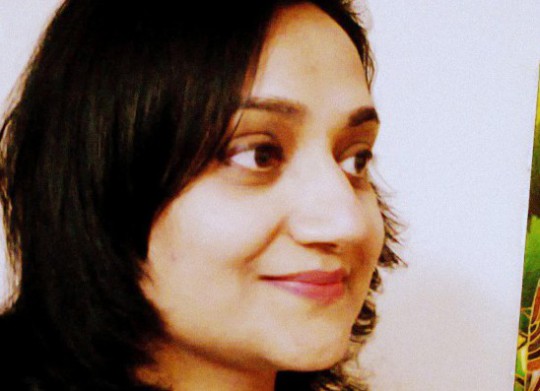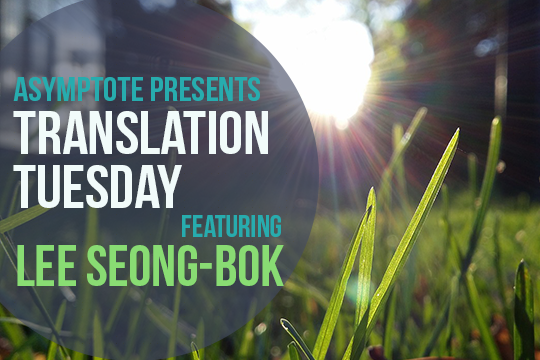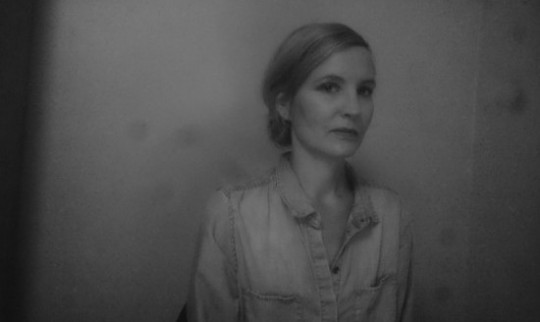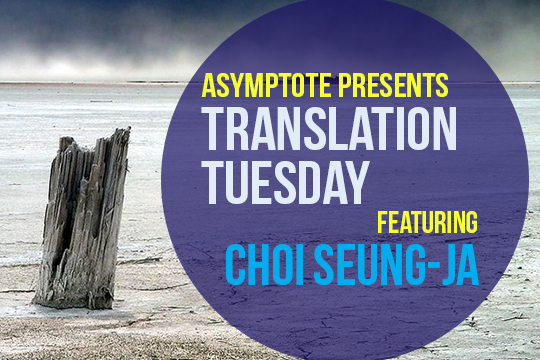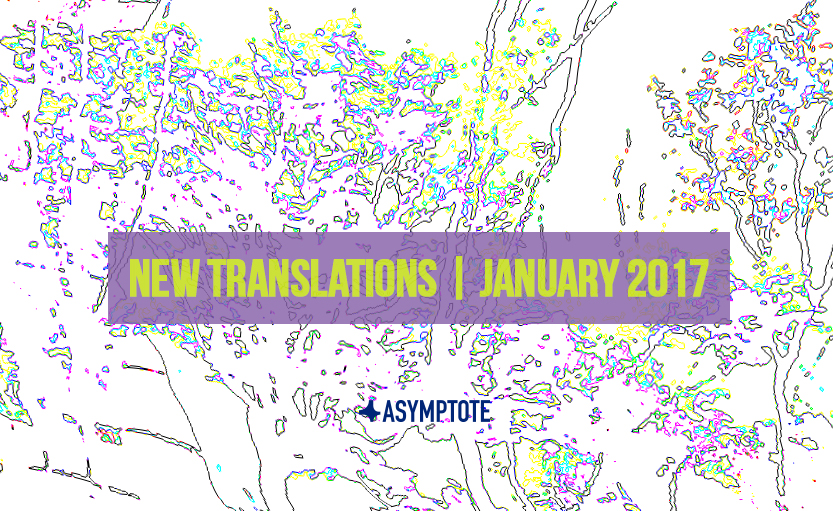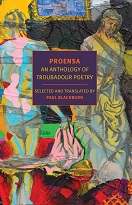Welcome to Teach This, Asymptote for Educators’ answer to the current issue’s Banned Countries Special Feature. We believe that the classroom is the perfect setting for young people to be exposed to diverse, contemporary voices, both allowing them to challenge their assumptions and to engage them with living literature… a conversation in which their own voices matter. To that end, Asymptote for Educators has launched this weekly blog series in which global educators share how and why they would teach the feature’s articles. We hope you and your students enjoy!
Are you an educator with your own lesson plan ideas? Teach This – Banned Countries Special Feature is currently open for submissions. Email education@asymptotejournal.com for more information.
By paraphrasing a poem, we discover other choices the author could have made. If a paraphrase is possible, then the author could have said the same thing a different way. Why did they choose to say it the way they did? When we focus on this question, analyzing the effects of the author’s choices and considering how these choices contribute to the meaning, we get closer to the art of the poem. By doing so, we have the opportunity to recognize that poetry does not divide so evenly into form and content. The poem’s way of saying is essential to what it says.
This lesson plan is a rung on the ladder toward that insight. Pedagogically, we have to draw lines between form and content in order to draw attention to their special interrelationship in poetry.
Course Level: Middle School
Student Objectives:
CCSS.ELA-LITERACY.RL.6.2
Determine a theme or central idea of a text and how it is conveyed through particular details; provide a summary of the text distinct from personal opinions or judgments.
CCSS.ELA-LITERACY.RL.6.4
Determine the meaning of words and phrases as they are used in a text, including figurative and connotative meanings; analyze the impact of a specific word choice on meaning and tone
Materials:
One copy for each student of
- “Origin Stories” and “The Drought,” by Edil Hassan
- “In the Foreign Land,” by Omar Youssef Souleimane
A projector or Promethean board
Preparation:
For homework, ask students to read all three poems and complete brief, written paraphrases of their literal content. (This assignment assumes that they have already been trained in literal interpretation of poetry). Encourage students to infer the meanings of words they don’t know from context clues.
Be prepared to divide the students into groups of three or four.
Be prepared to explain the terms jilal (a severe, arid season in Somalia from December to March), tusbax (Islamic prayer beads), guntiino (traditional Somali dress), and jinni (a supernatural creature in Arab and Islamic traditions). Though you have assigned students to infer what they can from context for homework, you should share this information with them as the need arises.
Exercise:
Review of Literal Interpretation (5-10 minutes)
Before discussing the theme, meaning, and tone of a poem, it is important to have a common interpretation of its literal content. Tell the students you’re going to do the same thing together with Edil Hassan’s “Origin Stories” that you’ve practiced before in previous lessons: read it one line or sentence at a time, paraphrasing its direct, surface meaning. They can and should refer to the written work they have done to prepare.
For each line or sentence, ask one student to tell the class what they think it says. Another student paraphrases this reading. As needed, address questions to the class to elicit closer reading. Be clear that no one is entitled to speak to these questions who cannot show that they have listened to what the other students have said. You can even ask them to repeat or paraphrase previous remarks before they speak. This requirement helps to ensure that everyone has the same basic read of the poem and reinforces the understanding that interpretation is a communal activity.
Some difference of opinion is possible, but everyone should at least agree that the speaker is telling the story of how her parents met, and that the afternoon light colors the mother’s skin with the gold of her earrings. (It’s not melting them down her neck; a likely misreading!)
Introduction to Thematic Analysis (5-10 minutes)
Tell the students you’re now going to read the poem again, this time with a new question: not just “what does it say?” but “what is it doing?” Be explicit about the interpretive strategy you are about to demonstrate: you’re going to think about other choices the author could have made, other ways they could have said the same thing, and try to see how the choice they made has a unique effect.
Read “Origin Stories.” As you read the title, and each line or sentence, stop to point out to the students the choices the author has made and to briefly consider them. (e.g., why not “How My Parents Met?” How does the allusion to superhero stories tell us what to expect?) Keep each choice and its effects in mind as you analyze the next choice, and reach a conclusion about what the poem is doing as a whole.
It may be helpful to use a graphical organizer to represent the choices and their effects. For example, in a table, you can list interesting choices in one column, and analyze their effects in a second column. (Variant: an additional column with the heading “Alternatives,” presenting other choices the author could have made, can help to highlight the choice as a choice.)
In this part of the lesson, do not allow the children to interject or ask questions until the end. Just politely ignore all those eager raised hands.
Check for Understanding (5 minutes)
Ask a volunteer to explain the meaning of the poem and the theme to the class. Encourage them to use the choices identified earlier to support their interpretation of the theme. If they make an error in literal interpretation, do not correct them but ask questions based on the text. If they present a thematic analysis different from yours, encourage this exploration.
On the other hand, if other students want to help the volunteer, this should be permitted.
Don’t allow this segment to continue for too long.
Small Group Practice (25 minutes)
Tell the children that they will repeat the same exercise in small groups of three or four, with the longer poem “The Drought.”
Each group should work through the poem to identify decisions made by the author, and analyze the effects of those decisions. If you demonstrated a graphical organizer for this process, they should use a similar organizer. You don’t need to hand it out. It’s better if they draw it up themselves.
Tour the classroom, checking in with each group. If students are struggling to analyze a particular choice, ask them to compare it to the alternatives. What difference does it make?
Independent Practice (in-class or homework)
Ask the children to read Omar Youssef Souleimane’s “In the Foreign Land,” and write two or three paragraphs addressing the following prompt:
What is the tone of this poem? What effect does that tone have on the way we read the poem? What choices does Souleimane make to create this tone? Refer to particular lines, describing the effect of the word choices.
Teacher Follow-Up
You can continue the discussion of student analyses by having representatives of each discussion group report their results and allowing other students to pose questions and comments about any of the poems. Encourage students to support their conclusions by providing textual evidence.
Students may wish to respond to each other’s analyses of “In the Foreign Land.” You can act as a facilitator in this discussion and avoid interfering too heavily, except to insist, that the students demonstrate diligent attention to each other.
Amos J. Hunt‘s mission in life is to cultivate a discerning mainstream readership for poetry. As the founder and executive director of Imagine Dallas Literary Arts [imaginedallas.org], he designs and delivers in-class poetry appreciation tutorials for public schools in Dallas County. He also edits the literary magazine Grub Street Grackle [grubstreetgrackle.com].
*****
Asymptote for Educators wants to see your students’ creations! Submit them to education@asymptotejournal.com for the opportunity have them published in a follow-up to this blog post.


